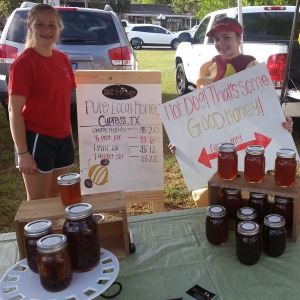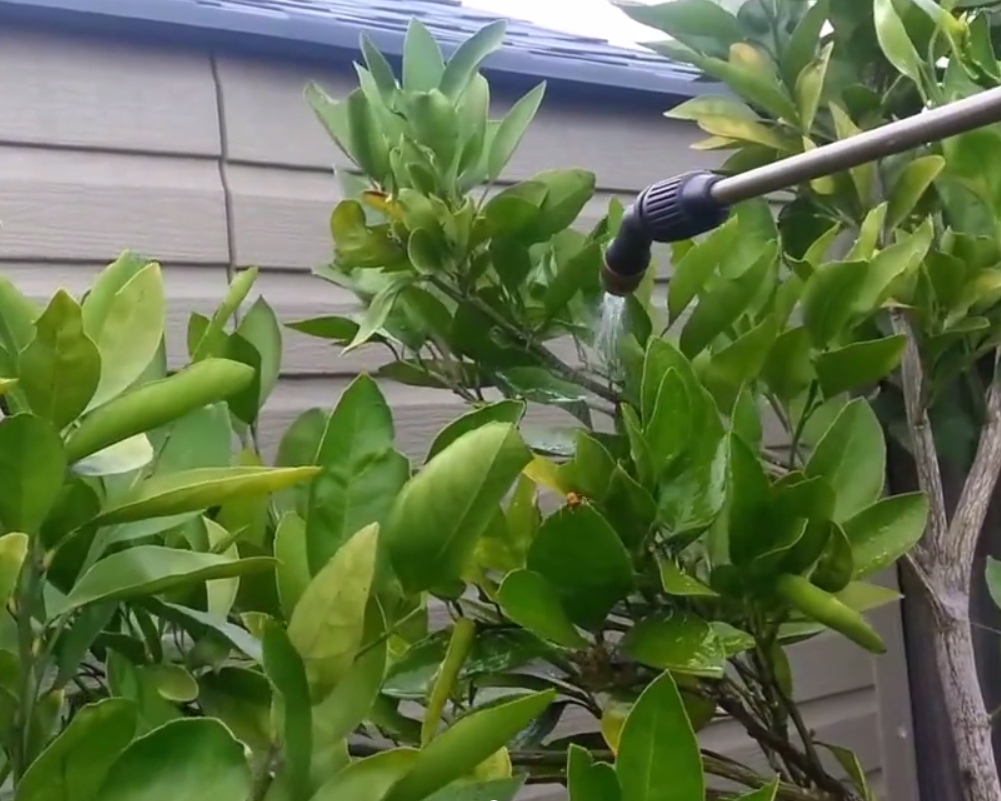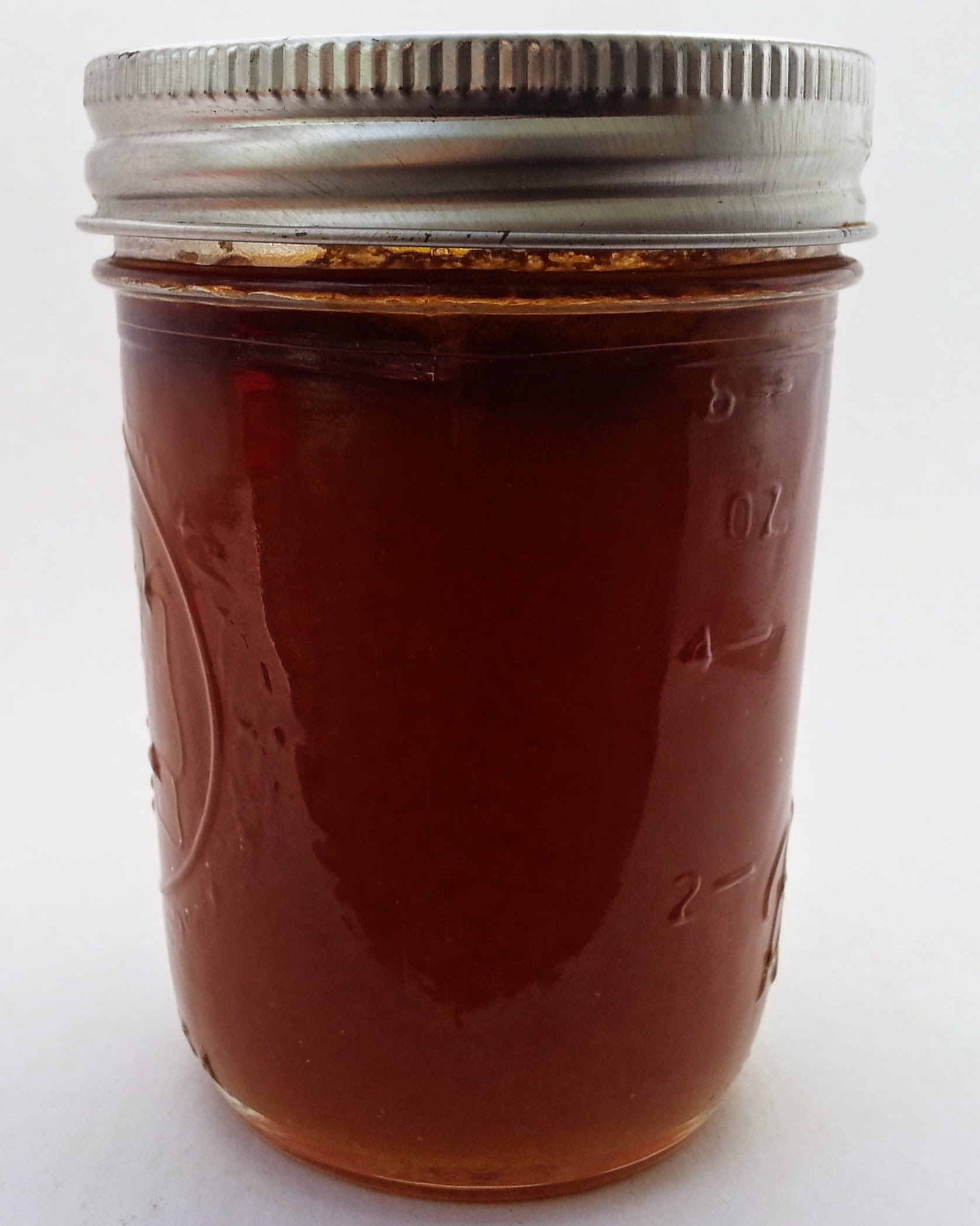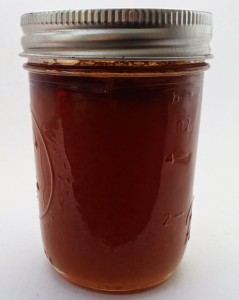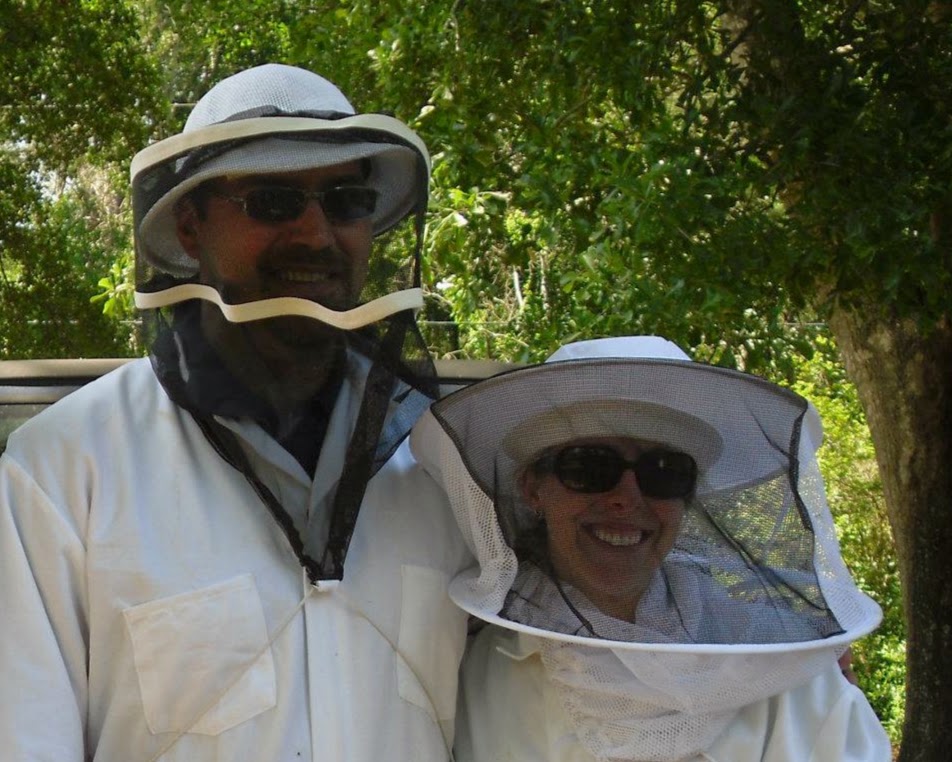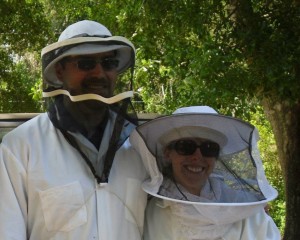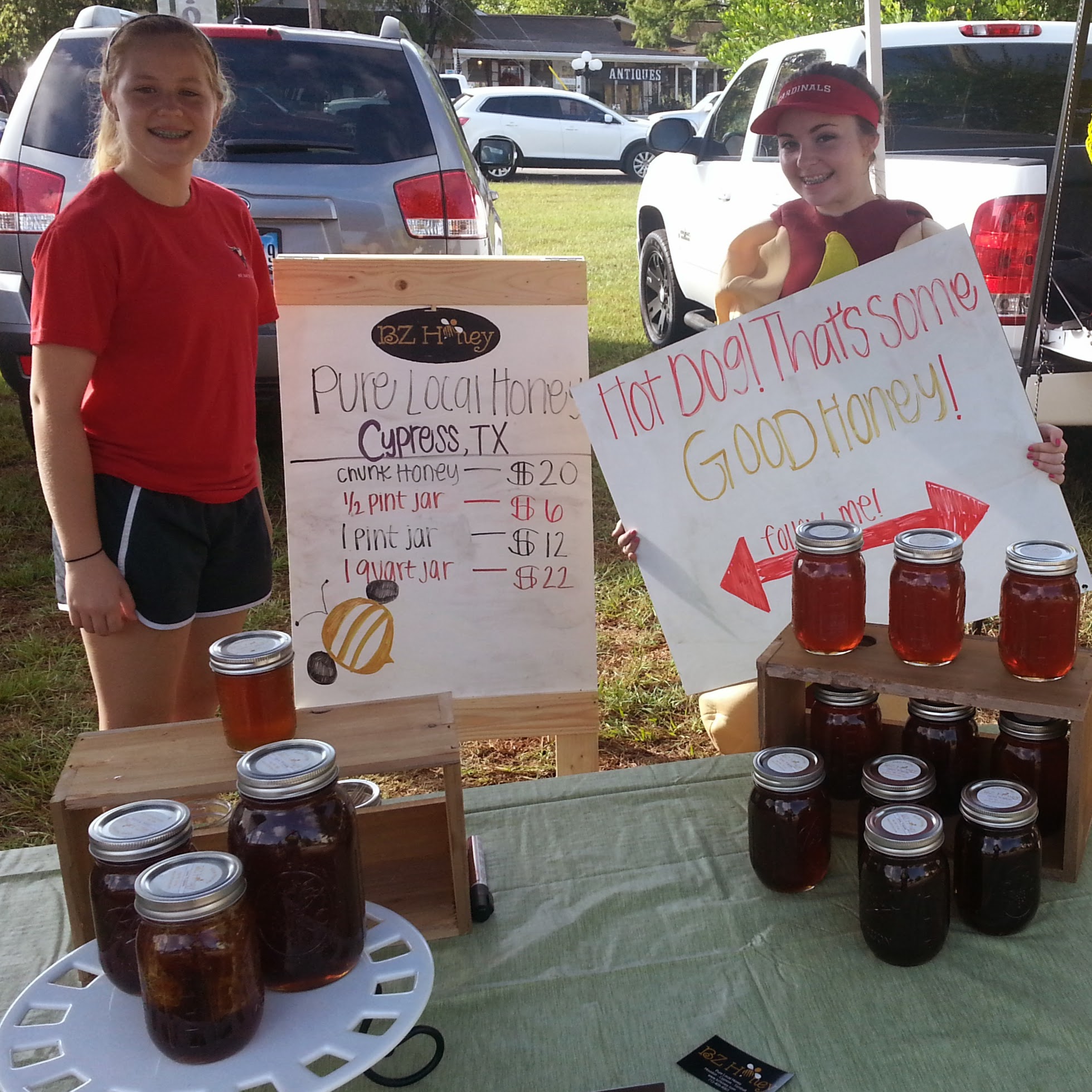
We’ve enjoyed talking to customers at Farmer’s Markets this year. We not only get to teach people about honey and bees, but also learn what customers think about these subjects. Often, while explaining why our honey is so good, we see frustration on our customers’ faces because they just bought some other honey and didn’t know what to ask during that purchase.
You can and should make your own observations about honey before you even begin to ask questions. First, look at the surface of the honey in the container. Bubbles are formed in honey during the extraction process as the honey is removed from the combs, but usually moves to surface and can be removed after resting for 24 hours. Bubbles also form if honey is removed from the hive too early and ferments because of excess moisture. Either way, if it has a thick layer of foam, you may want to consider other options. If the beekeeper lacks the patience to wait for the bees to finish curing the honey or wait 24 hours for the extracted honey to settle, you’re looking at a risky purchase.
If the honey looks good, ask for a sample then start asking questions. To help future customers with that situation, here are:
7 Important Questions When Buying Local Honey
- Are you a beekeeper? This sounds crazy, but the honey industry has two main categories, producers and packers. Producers intuitively are those people or companies that own bees who’s hives produce the honey the sell. What’s not intuitive is the practice of packing honey. Anyone can buy a drum of honey, fill jars, and take them to the farmer’s market. That person doesn’t know anything about where that honey came from, so it’s always best to buy from beekeepers.
- Is this your honey? Similar to the explanation above, you want to buy from someone with a vested interest in selling pure, unadulterated honey rather than someone selling a commodity.
- Do you blend your honey? Most beekeepers blend their honey from all their hives to increase efficiencies in extracting and inventory. Neither of those efficiencies benefits the customer looking for local honey. If you’re looking for a particular varietal (clover, orange blossom, etc.) or honey from a particular area, you want only that honey, not a little of it mixed with everything else. You certainly don’t want some of it blended with honey from the aforementioned drums.
- How local is your honey? When talking about local honey, you should reference your town or a neighboring town, not your state. There’s a big difference between Cypress, TX honey, TX honey and U.S. honey.
- Do you treat your hives? Did the beekeeper put any chemicals in their hives to treat for pests and diseases? You’d think this would be a no-brainer, but most commercial beekeepers add chemicals to their hives to control varroa mites, small hive beetles, and american foulbrood disease. Bees move honey, nectar, and pollen throughout the hive to support young bees and prepare for storage, so who knows where those chemicals end up?
- Do you filter your honey? All beekeepers strain the wax cappings from their honey, but some go many steps further and use microfiltration. This makes their honey visually perfect by removing all wax, pollen, and any other impurities, but it also strips the honey of any local character. Microfiltration also masks the origin of honey, making it easier to sell questionable honey (see items 1 and 2).
- Do you heat your honey? Some honey processors will heat their honey to make it flow better through filters, tubing, fillers, and into the final containers. Just like the saying with maple syrup, honey moves slower when cold. Heating honey does have drawbacks. The aroma of honey is very volatile and heat will drive off that aroma, depriving you of the floral components of good honey. Heat also neutralizes the enzymes that bees add to honey during the curing process.
If the honey looks good, tastes good, and you get satisfactory answers to the above questions, then you’ve found some good local honey. Enjoy!
Matt
P.S. – Our answers are:
- Are you a beekeeper? Yes, we’ve kept bees since 2012.
- Is this your honey? Yes, we only sell our honey.
- Do you blend your honey? No, think of our honey as a single-barrel bourbon. All of the honey in a bottle was extracted from hives in a single bee yard from a single extraction day.
- How local is your honey? We have hives in Cypress, Tomball, and Houston, TX and our bees can fly to the Farmer’s Markets where we sell our honey.
- Do you treat your hives? No, we rely on selective breeding, integrated pest management, and strong hives to keep our bees alive. We don’t add any chemicals to our hives and therefore, don’t add any chemicals to our honey. We sell it to you just the way the bees make it.
- Do you filter your honey? No, we only strain it to remove the beeswax from the extraction process.
- Do you heat your honey? No, all of our honey processing happens at ambient room temperature, which is colder than the inside of the bee hive.
